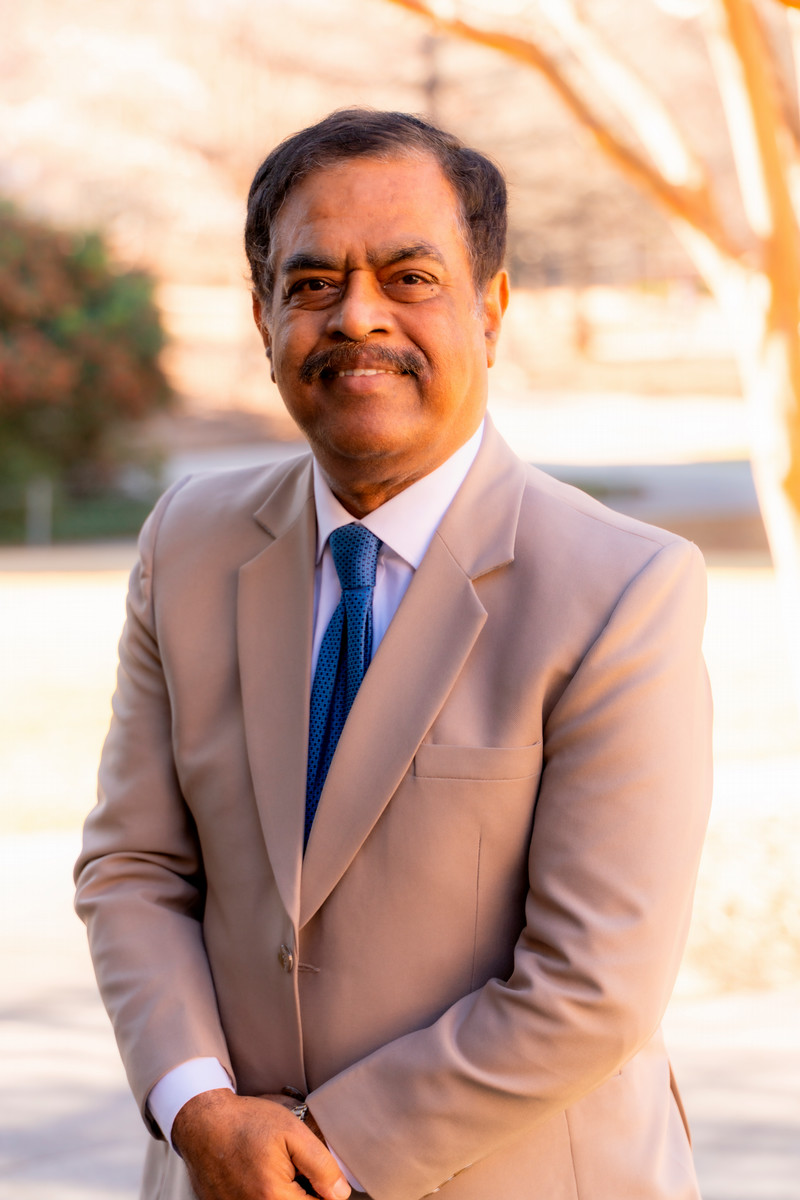content body

The College of Sciences and Mathematics is excited to announce Dr. Ashraf Uddin, Robert B. Cook professor of Geosciences at Auburn University, received the Climate, Earth, Health, Environmental Sciences, and Humanity (CEHESH) Trust of India award.
The certificate commended Dr. Uddin, an elected fellow of the Geological Society of America, for his significant contributions to advancing the understanding of geological processes and celebrated his outstanding achievements in the field.
Dr. Uddin revealed that he was unaware of the honor until contacted by the CEHESH Trust of India, which thoroughly reviewed his work and accomplishments through a detailed email application process. "They asked me a few questions, and everything was handled entirely through email—no Zoom or other meetings," Dr. Uddin explained. "I believe they were most interested in the highlights of my work. The process was finalized around late fall."
Spanning critical areas such as carbon sequestration, sea level changes, and geological studies of the Himalayas, Dr. Uddin’s research addresses pressing environmental challenges. His work on carbon sequestration focuses on regions in Alabama, including southwest Alabama and northeast Birmingham, promoting sustainable solutions to environmental issues. Additionally, his studies on sea level rise highlight its impact on coastal communities, such as shrimp harvesters, mangrove and other woodcutters, and those looking for non-saline waters, inspiring him to pursue funding for a National Science Foundation (NSF) project in Bangladesh.
In these ongoing projects, he finds that the sea level rise has affected people who harvest shrimp, which could cause health concerns. He is writing a grant proposal with the National Science Foundation for a coastal research project in Bangladesh. Dr. Uddin’s work on carbon sequestration focuses on the southwest Alabama and the northeast Birmingham regions. He is very optimistic about the future of these projects and hopes that changes will happen to these surrounding areas soon.
Dr. Uddin’s extensive geological studies of the Himalayas explore how the Indian and Asian tectonic plates collided to form the mountain range. By drilling into the foothills and sedimentary layers, he has uncovered valuable insights into the region’s complex geological history that the eastern Himalayas were formed much later than their western counterparts.
Building on his earlier NSF-funded expertise at the eastern Himalayan and southern Appalachian regions, especially the sediments from the Grater Black Warrior Basin of Alabama, Dr. Uddin has also expressed interest in studying the central Appalachian region, where he aims to uncover evidence of a mega-channel that once flowed through the area. This investigation will follow the completion of his current projects.
In addition to his research, Dr. Uddin is deeply committed to educating the next generation of geoscientists. He emphasizes the importance of integrity in research, ensuring that data is only published when accurate, and preparing students to become future leaders in the field.
Looking ahead, Dr. Uddin remains dedicated to advancing his research and mentoring students. He plans to continue his work on carbon sequestration in Alabama, finalize his NSF grant proposal for coastal research in Bangladesh, and expand his studies to uncover geological secrets in the central Appalachian region. His dedication to science and education continues to make a lasting impact on the field of geosciences.




